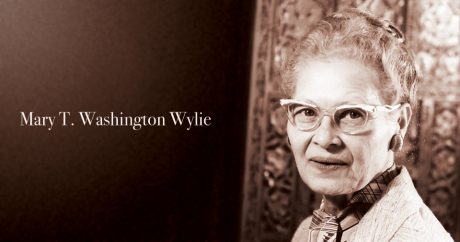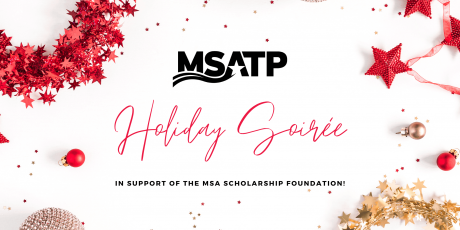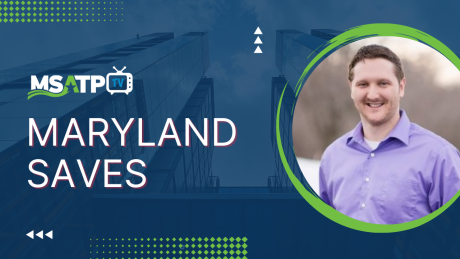
COVID Tax Relief: IRS Provides Broad-Based Penalty Relief For Certain 2019 and 2020 Returns Due to the Pandemic | IR-2022-155
To help struggling taxpayers affected by the COVID-19 pandemic, the IRS issued Notice 2022-36, which provides penalty relief to most people and businesses who file certain 2019 or 2020 returns late.
The IRS is also taking an additional step to help those who paid these penalties already. Nearly 1.6 million taxpayers will automatically receive more than $1.2 billion in refunds or credits. Many of these payments will be completed by the end of September.
Besides providing relief to both individuals and businesses impacted by the pandemic, this step is designed to allow the IRS to focus its resources on processing backlogged tax returns and taxpayer correspondence to help return to normal operations for the 2023 filing season.
More information here.
SDAT Conducts Tax Credit Awareness Campaign, Encourages Marylanders to Apply Online | Nearly 124,000 Postcards To Be Mailed Encouraging Low-income Homeowners and Renters to Apply for Property Tax Credits
The Maryland State Department of Assessments and Taxation (SDAT) today announced the implementation of its 2022 Tax Credit Awareness Campaign, urging Marylanders to consider whether they may be eligible to receive a homeowners’ or renters’ property tax credit. The quickest and easiest way to find out more information and submit an application is by accessing the innovative online tax credit application system, which strengthens SDAT’s ability to continue processing all tax credit applications in an accurate and timely manner. The deadline to file for both tax credits is October 1, 2022.
Read the full press release here.
IRS Issues Final Rule Under No Surprises Act (T.D. 9965) | via Wolters Kluwer IntelliConnect*
The IRS has released final rules under the No Surprises Act which includes certain disclosure requirements relating to information that group health plans, and health insurance issuers offering group or individual health insurance coverage, must share about the qualifying payment amount (QPA) under the interim final rules issued in July 2021, titled Requirements Related to Surprise Billing; Part I (July 2021 interim final rules). Additionally, the Service has finalized select provisions under the October 2021 interim final rules, titled Requirements Related to Surprise Billing; Part II (October 2021 interim final rules), to address certain requirements related to consideration of information when a certified independent dispute resolution (IDR) entity makes a payment determination under the Federal IDR process. These final rules are effective on November 17, 2022, for plan years or policy years beginning on or after January 1, 2022.
Information to be Shared About Qualifying Paying Amount
The IRS has added a definition for the term “downcode” to 26 CFR 54.9816-6, 29 CFR 2590.716-6, and 45 CFR 149.140; and final rules under 26 CFR 54.9816-6(d), 29 CFR 2590.716-6(d), and 45 CFR 149.140(d) to require additional information about the QPA that must be provided with an initial payment or notice of denial of payment, without a provider, facility, or provider of air ambulance services having to make a request for this information, in cases in which the plan or issuer has downcoded the billed claim. These final rules also specify that, if a QPA is based on a downcoded service code or modifier, in addition to the information already required to be provided with an initial payment or notice of denial of payment, a plan or issuer must provide a statement that the service code or modifier billed by the provider, facility, or provider of air ambulance services was downcoded; an explanation of why the claim was downcoded, including a description of which service codes were altered, if any, and which modifiers were altered, added, or removed, if any; and the amount that would have been the QPA had the service code or modifier not been downcoded.
Payment Determinations Under Federal IDR Process
Although the QPA is a quantitative figure, the amount that best represents the value of the qualified IDR items and services may be more or less than the QPA due to additional circumstances that are not easily quantifiable such as the care setting or the teaching status of the facility. It, therefore, is reasonable to ensure that certified IDR entities consider the QPA, a quantitative figure, and then consider the additional, likely-qualitative factors, when determining the out-of-network rate.
In determining which offer to select during the Federal IDR process under these final rules, the certified IDR entity must consider the QPA for the applicable year for the same or similar item or service and then must consider all additional information submitted by a party to determine which offer best reflects the appropriate out-of-network rate, provided that the information relates to the party’s offer for the payment amount for the qualified IDR item or service that is the subject of the payment determination (and does not include information that the certified IDR entity is prohibited from considering in making the payment determination under Code Sec. 9816(c)(5)(D).
Phase-In Period for Dividend Equivalent Payment Regulations Extended Further (Notice 2022-37) | via KPMG
The IRS today released an advance version of Notice 2022-37 announcing an additional two-year extension for taxpayers to comply with the final regulations with respect to dividend equivalents under sections 871(m), 1441, 1461, and 1473.
Notice 2022-37 [PDF 111 KB] states that Treasury and the IRS intend to revise the regulations and in the meantime provides the following extensions of time:
- An extension to the phased-in application of the section 871(m) regulations to delta-one and non-delta-one transactions (Treasury and the IRS intend to revise the effective/applicability date for Reg. section 1.871-15(d)(2) and (e) to provide that these rules will not apply to any payment made with respect to any non-delta-one transaction issued before January 1, 2025.)
- An extension of the simplified standard for determining whether transactions are combined transactions (Withholding agents are not required to combine any transactions that are listed securities entered into in 2017. Notice 2017-42, Notice 2018-72, and Notice 2020-2 extended the period during which this simplified standard for combined transactions applies to include 2018 through 2022. Notice 2022-37 further extends the period during which this simplified standard for combined transactions applies to include 2023 and 2024.)
- An extension of phase-in relief for qualified derivatives dealers (QDDs) (Notice 2017-42, Notice 2018-72, and Notice 2020-2 announced that Treasury and the IRS intended to amend Reg. sections 1.871-15(q)(1) and (r)(3), and 1.1441-1(b)(4)(xxii)(C) to provide that a QDD will not be subject to tax on dividends and dividend equivalents received in 2017 through 2022 in its equity derivatives dealer capacity or withholding on those dividends (including deemed dividends). Notice 2022-37 announces that Treasury and the IRS intend to amend those provisions to provide that a QDD will not be subject to tax on dividends and dividend equivalents received in 2023 and 2024 in its equity derivatives dealer capacity or withholding on those dividends (including deemed dividends) as well.)
- An extension of transition rules from Notice 2010-46 (Notice 2018-5, Notice 2018-72, and Notice 2020-2 provided that notwithstanding the preamble to the 2017 regulations, withholding agents may apply the transition rules described in Notice 2010-46, Part III, for payments made in 2018 through 2022. Notice 2022-37 provides that withholding agents may also apply the transition rules described in Notice 2010-46, Part III, for payments made in 2023 and 2024.)
Notice 2022-37 further provides the anti-abuse rule provided in Reg. section 1.871-15(o) will continue to apply during the phase-in years (described above). As a result, a transaction that would not otherwise be treated as a section 871(m) transaction may nevertheless be a section 871(m) transaction under Reg. section 1.871-15(o).
View the KPMG article here.
District of Columbia—Tobacco Tax: Upcoming Tax Rate Changes for Cigarettes and Other Tobacco Products | via Wolters Kluwer IntelliConnect*
There are upcoming tax rate changes in the District of Columbia for cigarettes and other tobacco products.
Rate Changes
Effective October 1, 2022 the total tax on a package of 20 cigarettes is $5.02. The total tax is a combination of the tax of $4.50 and the surtax of $0.52.
The calculated tax applicable to other tax products for tax year 2023 is 79%.
Virginia—Personal Income Tax: Deduction Enacted for Educators | via Wolters Kluwer IntelliConnect*
Virginia enacted an income tax deduction of up to $500 for certain expenses incurred by an eligible educator, applicable to taxable years 2022, 2023, and 2024. An eligible educator is an individual who, for at least 900 hours during the taxable year, served as a Virginia licensed teacher, instructor, student counselor, principal, special needs personnel, or student aide for public or private primary or secondary school students in Virginia. Qualifying expenses are those incurred for participation in professional development courses and the purchase of books, supplies, computer equipment (including related software and services), other educational equipment, and supplementary materials used directly in service to Virginia students as an eligible educator.
Virginia—Personal Income Tax: Military Retirement Subtraction Enacted | via Wolters Kluwer IntelliConnect*
Virginia enacted a subtraction modification for certain military benefits, starting at $10,000 in 2022 and increasing to $40,000 when fully phased in beginning in 2025. Military benefits include military retirement income and benefits paid to the surviving spouse of a veteran. The subtraction is allowed only for military benefits received by an individual age 55 or older. Similar provisions were previously enacted in the biennial budget (TAXDAY, 2022/06/23, S.18).

Nexus Webinar:
- Date: Thursday, September 22, 2022
- Time: 1:00 p.m. – 5:00 p.m.
- CPE: 4 (Recommended)
- Speakers: James Dawson, JD; Sonia Shaikh, Joseph Flack, & Brigid Fitzpatrick
Cost: $160 (Members); $180 (Non-Members)
Register here: Seminar – Maryland Society of Accounting & Tax Professionals (msatp.org)
Inflation Reduction Act of 2022 Webinar:
- Date: Friday, September 23, 2022
- Time: 10:00 a.m. – 12:00 p.m.
- CPE: 2 (Recommended)
- Speaker: Bradley Burnett, JD
Cost: $100 (Members); $110 (Non-Members)
Register here: Seminar – Maryland Society of Accounting & Tax Professionals (msatp.org)
View more seminars/webinars here!


Check out our first-ever volunteer spotlight with Ron Grafman, EA — the outgoing Board of Trustees Delegate on MSATP’s Board of Directors.
Ron believes that MSATP truly serves its members — therefore, members should want to give back by volunteering. He would love to see more members get involved because that’s what makes the Society successful, and what makes it so great.
Read more here: Volunteer Spotlight: Ron Grafman – Maryland Society of Accounting & Tax Professionals (msatp.org)
Get involved and volunteer today — more details here.

3 all-inclusive days down by the shore, 13 hours of CPE, and access to Maryland’s top talent in the accounting and tax field.
Register here: Home (msatp.org)

Looking for more CPE opportunities? The following Wolters Kluwer webinars are available to you at a special rate:
Register here: Seminars – Maryland Society of Accounting & Tax Professionals (msatp.org)




















